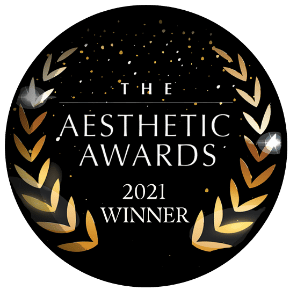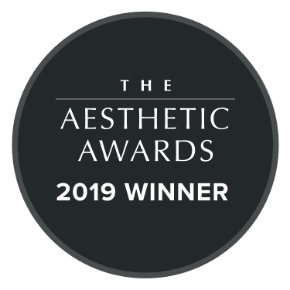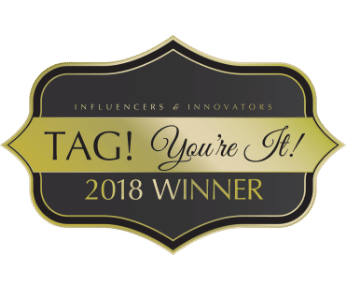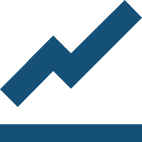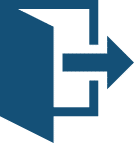00:00:05:09 – 00:00:45:07
Mara Shorr
Welcome to Shorr Solutions: The Podcast. I’m your host, Mara Shorr. I am a partner in the medical practice management company. Yes. Shorr Solutions. Who is the other partner? you may ask. Easy answer. That would be my father. Our founding partner, Jay Shorr. Together, we now have an amazing team and clients across the country. Listen as I chat, converse, strategize and commiserate with brilliant guests, colleagues, friends, clients, and influencers.
It’s time to listen, learn, and be inspired. Welcome to Shorr Solutions: The Podcast.
00:00:45:09 – 00:02:07:18
Mara Shorr
Welcome to this episode of Shorr Solutions: The Podcast. And for this particular episode, I have with me as my guest, Lori Robertson. Now, I have known Lori for years. We are colleagues, we’ve become friends over the years and first met, gosh, it was probably six, seven years ago now at The Aesthetics Show and we are both faculty at a number of conferences.
I’ve always loved being able to stop, have a drink with Lori when we’re in the same place. But more importantly for this episode, Lori is the really the co-founder of Aesthetic Immersion, and we are going to get into talking more and more about Aesthetic Immersion, which is a fascinating model that she and Dr. Gideon Kwok have created and she is also the owner and lead practitioner of Skin Perfect Medical in Bray, California, along with co-owner and medical director Dr. Gideon Kwok.
And Skin Perfect Medical actually has six different locations all throughout California. And Lori is like we talked about the owner and lead practitioner at the Bray location. So we are going to talk today about her incredibly fascinating background and how she came into the industry and how she is changing things up with Aesthetic Immersion. So, Lori, thank you so much for joining us today on Shorr Solutions: The Podcast.
00:02:07:20 – 00:02:12:18
Lori Robertson
Thank you so much, Mara. Thank you for asking me to be here with you. I really appreciate. I’m honored. Thank you.
00:02:12:18 – 00:02:47:20
Mara Shorr
Oh, I’m so glad we were able to do this. And so even though you are really about as far across the country as you can get, I’m here in Orlando and you are in L.A. County, in California. But it’s it feels like we’re able to be in the same place at the same time. So I really want to get into I know your incredibly interesting background, right?
It’s really interesting how you enter into this space, but I would love for our listeners of the podcast to learn a little bit more about your background, who you are, what you do and how you came into our industry.
00:02:47:22 – 00:04:17:18
Lori Robertson
I don’t know if you want an abbreviated version or not. I actually have. I know there’s so many other extracurricular things in my life I came into or I worked in medicine for about 24 years before I became nurse practitioner. So I worked in ICU and ER and then became a nurse practitioner after that and then worked in family practice for a few years.
And all the while I was doing that, I was always doing something else. I had two jobs going on. I was also working on set with ABC TV’s General Hospital, and I did that for 19, 19 and a half years. Maze mainly writing the dialog, editing all the scripts, talking with the store, the writers about long term and short term storylines and then being on the set when we filmed, when we taped our scenes.
But I would always order all the props, make sure all the props were there, and then I was there anyway. So I was I was union, I was sought after anyway for doing other TV show stuff. So I was on I played a nurse in either OR, ER, ICU, sideways, put a nurse on the show. So it was really easy for me to kind of do that.
I always laugh because I would tell them what was right, and then here’s what we need to do. They would write something. I’d say, You guys, you can’t keep. He’s he’s paralyzed from the neck down and you can’t have him walk out of the hospital. And like, no we need to, he is the star, we need to. And I said, Well, then don’t give him a real drug.
We need to make sure that you give him like FB123, you know, make it a fake drug. And it will get us a fake outcome. So I had a lot of tug and pull with the writers and the directors.
00:04:17:18 – 00:04:19:00
Mara Shorr
You created a lot of medical procedures over the years.
00:04:19:00 – 00:04:41:05
Lori Robertson
Oh my gosh, I created a lot of drugs that were nothing, you know? But it was nice was sometimes they did listen to me and we had some really good storylines. We had a breast cancer storyline, we had a pediatric heart transplant storyline with the HIV storyline, and those were pretty medically accurate. And, you know, there are people out there in the world that think this stuff is real, so I didn’t want to mislead them.
00:04:41:05 – 00:04:53:11
Mara Shorr
With with Robin and HIV. So yes I guess that was when I was watching General Hospital. So who knew that one day be having this conversation so that tomorrow would be that?
00:04:53:13 – 00:05:05:21
Lori Robertson
And that was years ago. That was a long time ago. And HIV was barely new. And we didn’t have all the research we have now or the medications. So it was it was really interesting. We got a lot of good information out there, which was really good.
00:05:05:23 – 00:05:14:20
Mara Shorr
What made you decide to make the transition away from that? Because you’re not doing that anymore. So what made you do that?
00:05:14:22 – 00:05:49:19
Lori Robertson
So when I became a nurse. Yeah, when I became nurse practitioner, I started working more. I worked at like 2, 12, several times a week at the hospital. Boy and even his practitioner started working in family practice. I was working every day and I couldn’t get to the set, so I would get all the I would get all of the scripts.
I would write the dialog, talk with the writers or all the props, and then I’d have to have somebody else go to the set for me, it just got to be too difficult to try to get to the set. So I after a couple of years, I just I just kind of I had to step away and stay in the real world and not the fantasy world, but it was fun.
00:05:49:19 – 00:05:55:04
Mara Shorr
Those days are done for you.
00:05:55:06 – 00:06:16:03
Lori Robertson
Those days are done for me. I haven’t done that for I haven’t done it for since probably 2009. I think I left in about 2009. So it’s been a few years, but I still keep in touch with people, you know, actors and editors and some of the producers and stuff. So it was nice. It was like a family. It was really nice. Everybody’s very nice.
00:06:16:03 – 00:07:29:02
Mara Shorr
There. And so you made the shift from from General Hospital and from working as an NP in a hospital setting, which you are obviously for the sake of this conversation, which is know obviously anyone that knows you, but you’re no longer in obviously either one of those roles. So now you are really a force to be reckoned with when it comes to the aesthetic, cosmetic industry.
And the one thing, not the one thing, one of the many things that I’ve always really, really admired is your passion for education. And so not only are you incredibly focused on making sure that your patients at Skin Perfect Medical at the right location, not just making sure that not only do they have the safest and best outcomes possible, but you’re really focused on making sure that other providers receive proper training as well, and everything from making sure that you will go out and you’ll perform those trainings.
And I always love the passion you have for that education. And where does that where does that passion come from and when do you think that’s one of my missions?
00:07:29:04 – 00:08:36:08
Lori Robertson
I think what is I think what’s kind of weird is, you know, I worked in in nursing medicine, you know, all these different places. Oh, I see all these great places. And I really liked where I worked. I learned so much. But what’s odd is I think since I felt kind of fell into the aesthetic specialty, which I went to get Botox one day and looked around and went, Wow, cool place to work.
You know, it’s kick back happy patients. You have music going on so nice. And I kind of fell into it. I found my passion. I love what I do. I feel every day that when I have time to just hang out with my patients and enjoy them, I feel very blessed, I think, because I appreciate it so much.
I think because I had so many years of not being able to do that, I didn’t. In all those other aspects I worked in, I didn’t have time to really kind of get to know somebody and their family and kind of just really get to know what they were like. And I do now. I make the time.
My visits are longer than most visits because I know that it’s half therapy, half talks. And I love it.
00:08:36:10 – 00:08:40:15
Mara Shorr
That’s a great way to put it. How long are your visits? How long do you plan this appointments for?
00:08:40:15 – 00:10:39:07
Lori Robertson
My neuro modulator appointments are half hour and my filler appointments are 45 minutes to an hour. Okay. So. So I leave plenty of time to talk to patients. I think one thing that’s really important with what we do and what sometimes is lost is that people lose being patient centric because what we do is about the patient.
It’s not about what I want, it’s about what that patient wants. It’s not about the money I’m going to make off of them. It’s not about paying my salary. That’s not what it’s about. It is about focusing a lot on that patient, being patient centric. Find out what they want. If they say, I don’t like this spot right here, and I go, Well, you need filler here and here and here.
You need all this other stuff. And if I do all that other stuff, but forget to remove that one place, that one little pigmented spot, they won’t look at anything else, but they will still look at that little spot. And I haven’t done what they came in for. So I have to concentrate on what bothers them the most.
So when patients come in and tell me, give me a whole laundry list of what bothers them, number one, I will have them take a mirror and I’ll look at them and I’ll say, I want you to look at yourself and tell me two things you like about yourself. What do you see that you like? I want to make sure that they feel okay with themselves inside.
Like if they say, You know what? I love my smile and I love my eyes. It’s just this wrinkle that bothers me. Then I know they’re pretty stable inside. If they can’t find one thing that they like about themselves, I kind of worry about that. I want to make sure that I can’t fix the inside. I can fix the outside, but I can’t fix the inside.
So I look for red flags, too. I look for red flags of body dysmorphia. I look for a lot of things like that when I talk to patients. If you don’t have time to talk to them, you don’t get some of those little little hairs on the back of your neck going up like this might be something that I can’t fix and I’m going to inherit a big a big problem.
So sometimes I don’t take those on. So I think we need that time to get to know our patients and and see what’s going on with them.
00:10:39:09 – 00:11:44:22
Mara Shorr
And we talk about that a lot, too. When we when we lecture, we talk a lot about knowing when to say no, because I think that in this industry you don’t bring a patient into your practice because you take their insurance and that’s not why that patient is coming to you. They’re coming because they want to come to you and you need to look at what are the reasons behind that.
There is a really interesting dynamic that is very, very different than cardiology, urology, oncology. I mean, there’s a very different dynamic here. And so always having to keep in mind, you can say no to a patient if that patient is not going to be satisfied with what you’re able to do for them. And it could be the patient’s expectations or not, not necessarily always just your skill as a provider.
It could be that you can’t meet their expectations and we tell our clients all the time, it’s okay to say that and take that time to get to know that. Listen to your gut, because your gut often wil not lead you wrong.
00:11:44:22 – 00:12:57:11
Lori Robertson
Yeah, and when you find when you find problems, when you find unhappy patients, when you find patients that look like Cabbage patch dolls, I think that is where and it happens way too often. We’re ethical. The lines get blurred because we are in a cash based medicine. It’s a cash based business, whereas cardiology, dermatology, GI, it’s not cash based, it’s usually insurance based.
So when you get somebody who’s looking at cash and getting something in and they get more money for more than they do, then you see a provider ethical lines getting blurred. And I won’t get on my soap opera about this, but I have a big soapbox about this because I, I think I come from so many years of being patient centric and taking care of that patient.
And money hasn’t made any difference to me that I’m still keeping that I’m still keeping my ethical lines in check and nice and strong. I don’t want them to move or I don’t want them to be blurred within my staff. I don’t want, I don’t do commission. I don’t want them to focus on if I do another syringe, I get more money.
I don’t do commission. And that’s why because I want to keep those lines very, very solid. And and I don’t want people getting treatments they don’t need.
00:12:57:13 – 00:13:11:07
Mara Shorr
And I think that there is there’s something to be said for that because we look at so many instances where practices will be blurring the lines. Right. And we know that commission is often not legal when you look at anti-kickback.
00:13:11:09 – 00:13:11:17
Lori Robertson
It’s not.
00:13:11:19 – 00:14:20:00
Mara Shorr
And even a bonus structure, depending on how we’re going to structure for your team as set up, it could be made to mimic a commission structure. It could be made to incentivize. Well, if you have just a little more of this and a little more of that and you know, even watching some of the things and the changes you’ve even made on your social media accounts, I remember watching from afar as you had previously done a lot of demos on social media, and you came out one day and said, I’m understanding that people who should not be injecting are using this as as a guideline, even if they’re not legally able to inject, and they’re using this as guidelines of how they should be injecting and I’m not going to feed into this. So from now on, I’m not going to help and assist in putting that information out there and putting it into the wrong hands and I commend you for that as well for saying, no, no, I’m going to make sure that I believe in strong education at the correct level of provider of who is legally allowed and who has the training to do this.
00:14:20:02 – 00:16:31:17
Lori Robertson
Right. And that broke my heart because I love to help teach. I love to help show people what I do. I love that. And that really broke my heart. So I’ve had to change the entire way I do things. I’m not nearly I don’t show nearly as much of what I do or as clearly and maybe just explain verbally.
So I have had to change that because I don’t want someone to hurt themselves. And I see that YouTubers are out there buying illegal product and injecting theim on lips and they’re telling people where to buy it and nothing’s happening to them. They aren’t prosecuted. So I don’t want someone to hurt themselves off of that. So yes, I refer people to our school.
Oftentimes people ask me a lot about education, where can I get education? And that is exactly why I wanted to start a school for years, and it finally came together and it’s amazing. It’s amazing. So I when I became partners with Dr. King in about a year and a half, almost two years ago, he’s out teaching internationally.
I’m out teaching internationally. And we both have a passion for sharing what we’ve learned. We both want to be safe. We both want to do the right thing. But we also have a passion for quality education. And we really have a thing against cattle herd type education that’s not quality. You want to make sure that people are learning and they are going to get the feel of things and they are going to be able to be safe and really adept injectors.
And you don’t get that when you’re watching 40 people deep, watching somebody inject, you know, one patient. So we really felt strongly about having a very, very good quality education, very intimate setting. We have a certain number of students that we allow in our hands on sessions, and that’s usually key. And I have no more than four a day.
Each instructor will have no more than four students in an eight hour day. So we get if you kind of look at different times of working things out, we get about four students that you get by hour to an hour and a half, one on one with us. So we are there with them, with the patient. We’re right there with them.
We’ll hold their hand if we need to.
00:16:31:18 – 00:16:32:18
Mara Shorr
Literally, literally hold their hand
00:16:32:19 – 00:17:32:05
Lori Robertson
And grab it or stop it in. The students get such a good education. We also mic them up with a livelier mic and each student, they’re all videotaped and we’re all videotaped. And that goes up into our website and the students can pull that down later to try to remember everything we told them. Because you can’t remember everything.
So everything that we do as far as educational wise is put up into our website at theaestheticimmersion.com. And we have webinars and educational sessions that people can pull down and learn. So it’s going to be launched in the summer of 2020 and it is like our eight, our foundations of the advanced course is all going to be up online so people can go and learn through the little vignettes and learn at their own pace.
But that’s a prerequisite to the hands on course in Southern California. So you have to take that online before you take the hands on course in Southern California. So and we know people did it because we can watch them and they have to take tests.
00:17:32:05 – 00:17:49:14
Mara Shorr
You know, I love that. So there’s the online component. There’s the in-person. Yeah, it’s really boutique, intentionally keeping it very, very small, which is so, so smart to be able to do that. So like you said, I mean, there’s nothing like literally hands on, right? I mean.
00:17:49:14 – 00:17:50:14
Lori Robertson
There is a…
00:17:50:16 – 00:18:04:13
Mara Shorr
There hands on the patient and your hands sometimes literally on the new injector. We’re an injector that really wants to take things from like a 1.0 to 2.0 or 2.0 to 3.0 level, because sometimes it’s good to be able to brush up on those skills.
00:18:04:13 – 00:19:13:02
Lori Robertson
It is and and in our school, it’s funny because in our foundation we call it foundations of advanced aesthetics, because we have people in there who who are new up to ten years of experience and not one person has come to that long course, which we’re putting online now and not said, Oh my gosh, I never do this, I never learned this, I never learned that much anatomy.
I never learned all the mechanisms of action of all these toxins. I’ve never learned the rheology of products, crosslinking… You know, we get so many people in Dr. Kwok and I get this all over the country that people inject stuff, that they don’t know what it is, how it interacts with tissue. Does it spread? Does it lift? What does it do?
What depth do you put certain things at, what arteries or at a certain depth, not just where they run but what depth are they anatomically? How do people vary? So there’s so much that we go into in this course that people are going like, okay, I, I never learned all this stuff. So it’s been really valuable to all aspects of injectors, new and very experienced because a lot of times there aren’t a lot of courses that go into this in-depth, which is why we did it.
00:19:13:04 – 00:20:59:10
Mara Shorr
In our industry. There are new technology and new product continues to come out and you can’t necessarily treat a new product the same way you would treat an existing product because there is going to be something different about it. It’s going to be whether it’s a difference in difference in duration of how long it lasts. Does a product that had previously lasted for 3 to 6 months, maybe now lasts shorter, but it’s quicker acting, right?
It’s takes quicker. It is a thicker product. A thinner product. It’s meant for a slightly different area. It’s permanent. It’s not permanent. I mean, we look at all of these different things and it’s everything is constantly changing. And so even if you’re an experienced injector, you may not be experienced with a brand new product that nobody is experienced with yet.
And I think that’s where the ongoing training we are as a consulting company constantly telling our clients because we work with clients of all levels, we have brand new practices that may have had an incredible amount of surgical knowledge, but they’re not as fluent when it comes to injectables, for instance. And so or it could be that it is radiofrequency or different different things like that because they’re used to being surgeons.
And so they say, you know what, I would like to brush up on this. It could be we practices and clients that we work with that have been in practice for ten years, 20 years, and they just maybe they want to send their team members because they’re now ready to hire a new NP, a new injector. And so, yeah, love, I love the concept of just continuing hands on education.
And so when did you…
00:20:59:10 – 00:21:00:22
Lori Robertson
There’s nothing like it.
00:21:00:24 – 00:21:07:21
Mara Shorr
Right? When did you open up the. And now is this location in Bray, or is it another location?
00:21:07:23 – 00:21:56:06
Lori Robertson
Our studio is in actually my office in Bray is 4300 square feet. So what we did was I end up taking over an old surgery center. So I have six rooms that I do my lasers and my injectables in, and I have two big back rooms that used to be that we cover a room in the O.R. so we’ve turned those totally change those into our didactic room where we do all our lectures, and then we have our hands on room where we have all the beds and TVs up on all of the walls and all of our 4K cameras everywhere.
So we’ve kind of converted that into our filming studio where we do all of our webinars from there and all our education goes from that studio where our hands are appearing. So it’s kind of it’s fun. You guys have to come see it.
00:21:56:08 – 00:22:12:06
Mara Shorr
And when we’re all, you know, okay to travel to California, I would, I would love that. It’s yeah, I always love seeing seeing what you’ve built and you know you and maybe a little bit Brian, your husband too, who often referred.
00:22:12:08 – 00:22:13:20
Lori Robertson
Just because he’s worked so hard.
00:22:14:00 – 00:22:25:16
Mara Shorr
By the way he’s glorious I love Brian. So he’s that I know that he always has an interesting hand and helps you build out things as well.
00:22:25:18 – 00:22:32:10
Lori Robertson
So he’s the wind beneath my wings. He’s like the most supportive person in the whole world. And he has worked really hard. Yeah.
00:22:32:12 – 00:22:59:08
Mara Shorr
There are a couple of questions I always love to ask people at the end of every podcast. And so we and I love I always love hearing the different answers. So what have you learned along the way that you would love to share is one question. Another question is what would you do differently if you had to do it all over again?
And then the third is what are you most proud of? And either personally or professionally. What are you.
00:22:59:12 – 00:24:08:01
Lori Robertson
Yeah, So. So what have I learned along the way? I can’t even start to say how much I’ve learned. I think I learned something every day. I think the most important thing I learned is that I can never know everything. And I learned, even if I go and teach somebody something and there’s somebody who’s not real experience or I just go, I’m at Cleveland and and be teaching some nurse practitioners there and they’re like, Oh, we use this book.
I’m like, Oh my God, I love that book. I’m going to buy that book. I find pearls everywhere, and I would say, one season we have a pearl necklace because I find little pearls everywhere. And I always, always want to stay humble enough to where I know I don’t know everything and I’ll never know everything. And I always want to keep that thirst for knowledge.
And I think that’s really become so prevalent in my psyche that I just want to learn from everybody and it’ll only make me better. I don’t feel like there’s competition at all, at all. I feel like I can collaborate with everybody. I go and train people down the street how to inject, you know, 95% of our market’s not touched, right?
00:24:08:03 – 00:24:40:00
Mara Shorr
So I love that, you know, and that’s where even seeing what you’re doing with The Asthetic Immersion and with the school, I had reached out one day and said, Hey, Lori, what if we collaborate and look at us participating on the business side and we would love to learn what we can provide? And you said, let’s continue this conversation.
And so I’ve been in touch with your team, and then we’re working together to provide really great business modules for The Aesthetic Immersion too, which is exciting. And because it’s collaboration.
00:24:40:02 – 00:25:38:13
Lori Robertson
Yeah. And it’s and it’s I’m staying in my lane because our lane is anatomy and injectables and lasers and, you know, is that your lane is business. You guys are good at business, you guys are good at every aspect of business. So it’s such a good marriage. It’s such a we’re not stepping on toes. We are touting each other.
And you know, I spoken with you guys at conferences for a long time and love what you guys have to present and love what you’ve seen and learned along the way. So it’s a wonderful collaboration. You ask me about one thing that I would do differently. I would probably choose my previous business partners more carefully because I learned a lot of how not to run a business from a previous business partner.
So you have to be careful. And when you go to choose a business partner or, not Dr. Kwok, he is amazing, but when you go to choose a business partner, make sure that you have you think alike, that your values and morals and standards are similar and make sure you have everything in writing to the word.
00:25:38:15 – 00:25:41:13
Mara Shorr
It’s a business prenup. You know, I think that.
00:25:41:15 – 00:25:42:18
Lori Robertson
Absolutely.
00:25:42:18 – 00:25:43:05
Mara Shorr
It is and people don’t think about when you partner up with somebody and you don’t think about what happens if something goes wrong. And with every partnership, we always say you need to think about what happens if you want to split up that partnership. And it could be a you know, whether that’s a relationship or whether that is romantic or business.
And what happens if somebody passes away and what sort of paperwork is put into place, because that could put you into business with that person’s spouse who you don’t ever want it to be. And, you know, you never want to be in business with them. And even honestly, even Jay and I have and I talk about Jay a lot.
Jay was on my first episode of Shorr Solutions: The Podcast, my dad. And even as father daughter, we have a partnership agreement in writing, legal, legally binding, signed by a lawyer. And we made sure that was really important to us as far as making sure everything was in writing.
00:26:44:04 – 00:27:10:10
Lori Robertson
It is because with one stroke of a pen, everything would be taken away from you, everything you’ve worked for. So and you might not think somebody will do that, but it happened to me and it can happen to anybody. You know, when you think when you write, you know, sometimes you realize I’m way too trusting of that person.
I just am. So no matter what, business prenup is absolutely the way to go, no matter how much you trust somebody.
00:27:10:12 – 00:27:31:01
Mara Shorr
And we work with our clients online all the time, we say that everything needs to be in writing, which is why we we always say we want to see every single contract before you sign it. For every one of our clients. We need to see everything because there’s and Jay jokes all the time about subsection A, one tiny A, III you know, it’s like that buried very deep in that…
00:27:31:01 – 00:27:32:07
Lori Robertson
Good
00:27:32:09 – 00:27:35:12
Mara Shorr
That is the item that’s going to get you, right and…
00:27:35:14 – 00:27:36:05
Lori Robertson
That’s good.
00:27:36:05 – 00:27:47:06
Mara Shorr
Reviewing all of it. We review contracts all day every day. And so what is one thing either personally or professionally that you are most proud of?
00:27:47:08 – 00:29:09:14
Lori Robertson
Gosh, I think I feel like Cinderella. I feel like Cinderella. I feel like I’ve had the opportunity to do so many things and it just I look and go, How did I get here? I’m proud of where I’m at. I never said that, but I’m proud of where I’m at that I’m able to be asked to speak at conferences.
We even like your podcast that you’ve asked me to do this. I’m so honored to teach for companies. I feel like people value my information and my knowledge, my experience. And I think I’m I’m proud of that because I know what I’m sharing is honest and and what I feel and what I enjoy and my passion. So I’m really proud of that.
I have always said that. But yeah, you know, you want I feel so proud of myself but yeah I in our school and being able to get out there and and affect people, I think we don’t realize how much how many lives we touch. I don’t realize how many lives I touch. And I think of it as I think of it as you throw a rock into a lake and you think you touch this many.
But it goes, it goes out and those little rings go out and you touch way more lives and what you than what you think you do. Because I get contacted by more people again than I ever thought I would touch from other countries. And it’s it’s inspiring. It’s very inspiring.
00:29:09:16 – 00:30:02:03
Mara Shorr
It’s, you know, watching you and listening to you lecture and learning from you. And sometimes it’s on practice management and sometimes it’s a matter of let me just absorb whether it’s on social or whether it’s sitting in the audience, you know, halfway back in a giant room. And I am so proud of you. And knowing how passionate you are, how much hurt you have.
And I think that that can’t be said for a lot of people, that it’s knowing that as long as you do the right thing, you know, you just you do the next great thing and keep ethics above everything else. And we always say that we don’t do anything unethical, illegal or immoral. And that is where we’re very picky about who we work with, because we really need to know that somebody is in the same boat and knowing that you’re absolutely in that boat and you have that same passion.
So you should be proud. We can’t in so many things.
00:30:02:03 – 00:30:45:02
Lori Robertson
We can’t fail. You know, we can’t fail. I always tell people, if you stay patient centric and morally and ethically right, even when you tell people no, like you were asking earlier, you know, could you tell people that? I tell people no all the time. I’m like, please, no, I don’t want to do your lips again. I don’t want to do your cheeks.
You look perfect. Please, no, come back in six months. They actually respect me more for that. And when you do tell them no, it tells them right away. They’re not out to open my pocketbook and take my money. She’s not there to take my money because it just proves to them, it proves them that I’m not it. Yes, we need to make money to survive, but we need to make it morally and ethically and do the right thing.
That’s truly where I believe that.
00:30:45:06 – 00:31:18:04
Mara Shorr
I think that’s I think that that’s absolutely perfect. And I think that that’s a really great place to wrap up. One thing I always want to make sure, where can people find you? And on social, how can they reach you and how can they find out more about both skin perfect medical As far as the practice in Bray?
And how can they find out more about Aesthetic Immersion and the school? So you have that. You have your arms, your wings. Everything, You and Dr. Kwok. So, how can people find you and reach you.
00:31:19:06 – 00:32:23:05
Lori Robertson
Okay. So for me, for private trainings and for information on that, you would go to lorirobertsonnp.com. So that’s my personal website You can there’s contact information it’s got my phone on there. You can contact me, email me off of that website or book private trainings for our school. It’s called The Aesthetic Immersion.
That’s I-M-M-E-R-S-I-O-N, immersion dot com. That website will guide you to everything you need webinars, memberships, everything that will be up in in the summer time. It’s up now, but I mean the memberships will be up in the summertime and such for our general, for our skin perfect medical, skinperfectmedical.com. Those are our six clinics.
You can always kind of click down to the bray clinic and go on to there and kind of look at what we provide on social media. I am @injectionexpert, so I coined that years ago and now I’m probably like, I shouldn’t be said the injection expert, but I know what it is. I think I feel like I’m learning every day and the more I learn, the more conservative I get.
But I mean, so that’s where people can find me on Instagram.
00:32:23:07 – 00:32:54:09
Mara Shorr
Perfect. Perfect. So that is how you can find Lori. And so if you have more questions for her and you’re wanting to see her as a patients or how you can find more information on Aesthetic Immersion for either the clinical trainings in person or online or the business training that we’re going to be providing and putting out there.
I absolutely encourage you to go online and check all of that out.
00:32:54:11 – 00:34:36:19
Mara Shorr
Before we go, I’m sponsoring my own podcast because, well, what smart business owner wouldn’t. We’ve recently joined forces with Aesthetic Immersion and are proud to bring you the content you’ve been asking for. Download checklists, phone scripts and get bonus pearls for your entire team, including what to do when reopening your practice after COVID and how to grow stronger than ever were before.
Visit theaestheticimmersion.com/webinars. Yes, that’s theaestheticimmersion.com/webinars to learn more. Plus use code. SHORR2020 to receive $50 off. Yes, that is code SHORR2020 to receive $50 off because something great is going to come out of this year. So that wraps up today’s episode of Shorr Solutions: The Podcast.
We hope that you’ve gotten as much out of this episode as we have, and if you have, I’d like for you to like it, rate us and share this episode with your friends, colleagues and the rest of your team. Remember to follow us on social media at Shorr Solutions and send me a message directly. I love hearing from you.
Plus, sign up for our newsletter to be the first to find out about our latest tips on running your practice more efficiently, dealing with the issues like drama and money in your practice and see our latest videos and blog posts before anybody else. Now’s the time to join at shorrsolutions.com and click on the e-newsletter button in the top right hand corner.
We’ll you next time. And remember, subscribe and leave us a review.



